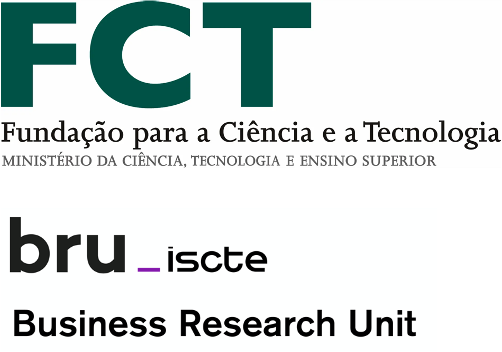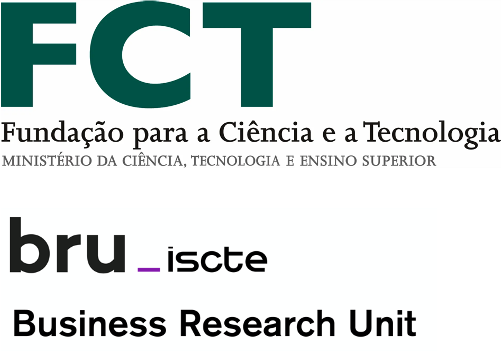Mestrado Erasmus Mundus em Resposta Humanitária, Saúde e Deslocamentos
Investigadora
The Coordinated Humanitarian Response, Health and Displacement action-research project aims to implement an international master's degree, including European and African universities - HumanResponse Erasmus Mundus Joint Master Degree.
The programme aims to provide a unique multidisciplinary programme in teaching and research about life-saving assistance and displacement in volatile contexts.
The Erasmus Mundus project provides 60 scholarships for students, teacher mobility and lectures by Visiting Scholars from various countries. In addition, it contributes to research with articles on innovative topics.
The programme is jointly developed by Iscte-University Institute of Lisbon, Norwegian University of Science and Technology (NTNU), Makerere University (MU), University of Cape Verde (UniCV), University of Santiago (US), University of Athens (UAthens) and University of Rovuma (URovuma).
The first semester is spent in Lisbon, Portugal, the second semester in Trondheim, Norway, and the third semester in Kampala, Uganda, before the students move to one of the seven partner institutions to work on their master’s thesis. In the fourth-semester students may collect dissertation data in humanitarian contexts with 23 institutions (associated partners) in Europe, Africa, the Middle East, South America or Asia. The curriculum is taught by both academics and practitioners, emphasizing problem-based learning and knowledge application opportunities in summer schools and internships.
HumanResponse tackles both research and teaching to address the pressing need for professionalisation of humanitarian workers through:
fostering South-North collaboration and multi-stakeholder cooperation,
strengthening localized leadership, and
articulating theory and practice to navigate organizational complexity in humanitarian action.
Informação do Projeto
2024-11-01
2030-10-31
Parceiros do Projeto
- IRU-Iscte - Líder
- CIES-Iscte
- NTNU - (Noruega)
- MAKERERE - (Uganda)
- NKUA - (Grécia)
- Uni-CV - (Cabo Verde)
- US - (Cabo Verde)
- Universidade de Rovuma - (Moçambique)
Informação do Projeto
2020-11-01
2022-10-31
Parceiros do Projeto
- BRU-Iscte (OB&HR)
- PAIZ Konsulting Sp. z o.o. - Líder (Polónia)
- Innovela sprl - (Bélgica)
- EXELIA E.E. - (Grécia)
- Strukovna udruga djelatnika u upravljanju ljudskim resursima - Centar HR - (Croácia)
- UNIVERZA V MARIBORU - (Eslovénia)
Digital Talent Ecosystem (DTE)
Investigadora
O PROJETO DTE vai disponibilizar um conjunto de funcionalidades inovadoras, que recorrerá a tecnologias nas áreas de inteligência artificial e blockchain, permitindo designadamente a seleção e avaliação de candidatos com motores e ferramentas muito especificas e diferenciadas
NEIRE 3
Investigadora
Social dialogue is an essential instrument within the EC to prevent and regulate relations between employers and employees. Within the EC conflicts at organizational level regularly escalate at high costs, and therefore member states offer different third party interventions and mediation services to solve these conflicts. The EC promotes mediation and other forms of non-judicial conflict resolution. However, there is a lack of knowledge about a) the actual functioning of these services; b) the conditions to promote the use of mediation; c) the antecedents of effective mediation interventions. Especially for collective labor conflicts, the structuring of third party support and mediation services in itself are important elements of social dialogue. Partners feel the need to innovate social dialogue. One of the components for innovation is supporting social partners at organizational level, especially when negotiations are stuck, agreements cannot be reached, or rights are not respected, and conflict escalation might occur. Different member states have different traditions in providing such mediation assistance. However, actual knowledge on how this functions and how to further develop lacks. Are the structures adequate, accessible, and acceptable to conflicting parties in collective organizational conflicts? How do the formal structures relate to the use of independent consultants offering facilitation and mediation services? What are limitations to the use of mediation, and how can ‘preventive mediation’ be used to de-escalate in an early stage conflicts within organizations between management and labor? These questions are at the heart of further development of social dialogue in Europe, and this study aims to compare the experiences in different member states, in a search for good practices, inspiring social partners and governments of member states to promote mediation, both as prevention and conflict intervention.
Informação do Projeto
2016-05-01
2018-04-30
Parceiros do Projeto
- BRU-Iscte
- KU LEUVEN - Líder (Bélgica)
- IESEG - (França)
- TUT - (Estónia)
- WWU - (Alemanha)
- Teamarbejdsliv aps - (Dinamarca)
- ESSEC - (França)
- UNIDE-IUL, ISCTE-IUL - (Portugal)
- FBV - (Itália)
- USE - (Espanha)
- University of Edinburgh - (Reino Unido)
- UM - (Países Baixos (Holanda))
- University Silesia - (Polónia)
- University of Bucharest - (Roménia)
Cognição de equipas, adaptação e sistemas multi-equipas em ambientes dinâmicos
Investigadora Responsável
A adaptação a ambientes instáveis e dinâmicos é um desafio para as organizações e requer melhorias contínuas nos produtos e serviços, bem como no funcionamento em geral. As rápidas mudanças exigem que os indivíduos e equipas de trabalho se adaptem rapidamente às novas condições e exigências das tarefas (e.g., Kozlowski & Bell, 2008). Esta nova realidade tem originado um conjunto de modelos teóricos e investigação empírica que tenta explicar a adaptação (e.g. Rosen et al., 2011). As equipas têm que ajustar os seus processos cognitivos e comportamentais, e os estados emergentes para se adaptarem a situações inesperadas (e.g., Burke et al. 2006). Contudo, a falta de integração teórica e empírica entre as diferentes abordagens tem impedido o avanço na área da adaptação de equipas. Ao nível empírico, existe claramente uma falta de estudos experimentais e de investigação que analise a adaptação como um processo dinâmico assim como de desenhos longitudinais que mostrem como é que os processos de adaptação ocorrem ao longo do tempo (Baard et al., 2014). Por fim, apesar das organizações se basearem cada vez mais em sistemas multiequipas (MTS) para atingirem os seus objetivos (Mathieu et al, 2001), a investigação não tem analisado como é que estas equipas coordenam as suas atividades para se adaptarem e atingirem desempenhos de excelência ao longo do tempo.
Propomos quatro estudos empíricos que combinam métodos de investigação e abordagens teóricas para captar as dinâmicas da cognição de equipa na adaptação e nas trajetórias de desempenho. Procuramos também investigar a cognição de equipa e a liderança como dois mecanismos de coordenação que facilitam a adaptação das MTS. No estudo 1 manipulamos experimentalmente os modelos mentais (MM) de equipa e a flexibilidade cognitiva de equipa para avaliar os efeitos causais destas variáveis nos processos de adaptação e nas mudanças no desempenho ao longo do tempo. Este estudo é inovador porque combina uma abordagem experimental ...
Informação do Projeto
2016-05-01
2019-10-31
Parceiros do Projeto
Prevenção Participativa dos Riscos Psicossociais Emergentes nas PME´S
Investigadora
Psychosocial Risks prevention was identified as a key priority and the recognition of the significant changes in the work context contributed for emphasizing Emergent Psychosocial Risks - EPR (e.g., precarious contracts, ageing workforce, and family-work conflict) (EU-OSHA, 2007). The contextual factors and risk management practices critical for prevention have been evidenced in research and support the European policy and national strategies and obligations. However, ESENER survey reveal that these policies did not yet consolidate into generalized good practices (EU-OSHA, 2010, 2012).
It is also acknowledged that social dialogue is a key factor for improving quality in work (EC, 2003), implementing participative solutions and empowering the stakeholders increase the success of the preventive actions. The accomplishment and positive outcomes of this involvement require that the stakeholders have opportunity to participate and that their perspectives are taking into account.
The current societal and economic crises amplified the threats related to psychosocial risks. In this context SMEs are more vulnerable and also facing bigger challenges for initiating, maintaining and improve prevention initiatives.
The present action intends to contribute for an efficient promotion of knowledge dissemination and offer an informative toolkit for preventive actions towards EPR that SMEs are facing, cross industry and cross sector. This will be achieved using social dialogue with different formal stakeholders. Action specific objectives are: Map the SMEs knowledge about EPR; Identify best practices and main obstacles perceived by SMEs Stakeholders; organize a workshop with stakeholders to disseminate and debate knowledge, action plans and a tool kit; develop a tool kit that can be easily used by SMEs.
The action targets SMEs in four European countries that are facing severe societal challenges due to the economic crisis (Portugal, Italy, Greece and Spain).

 English
English





